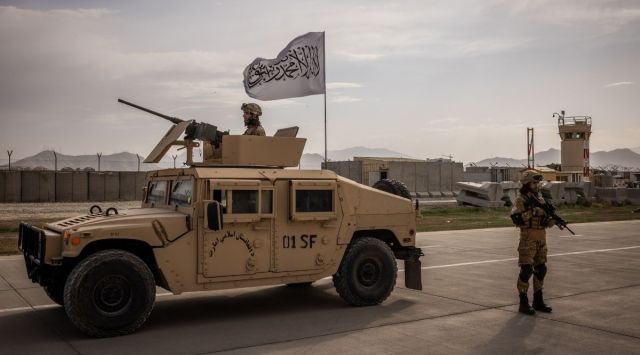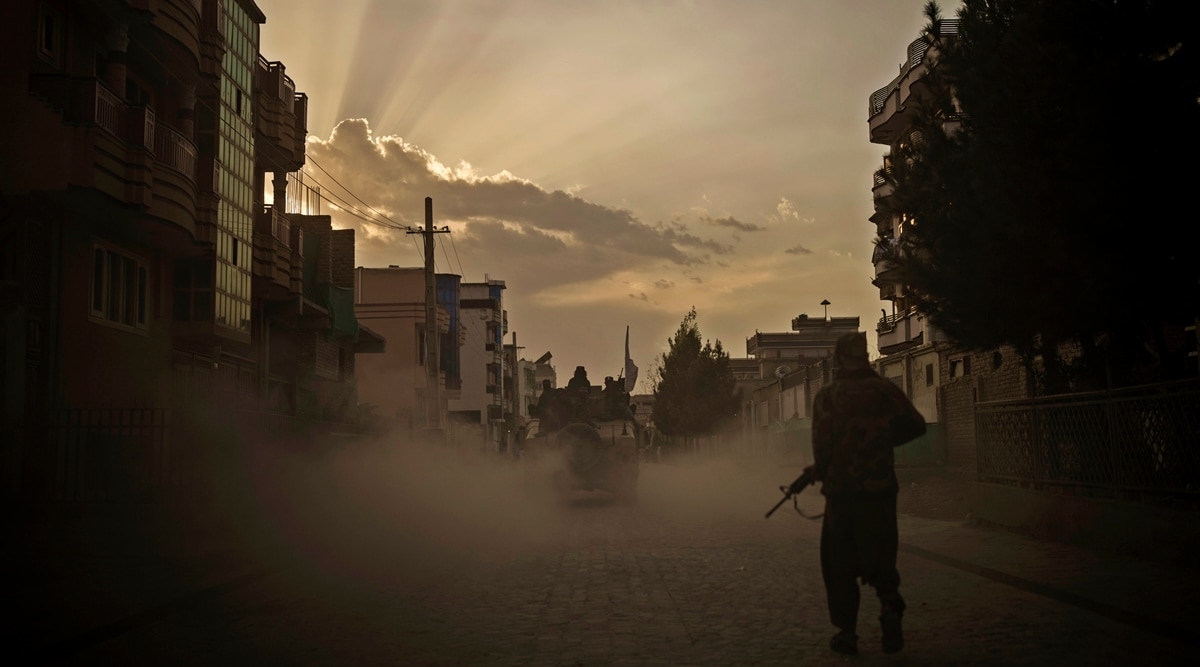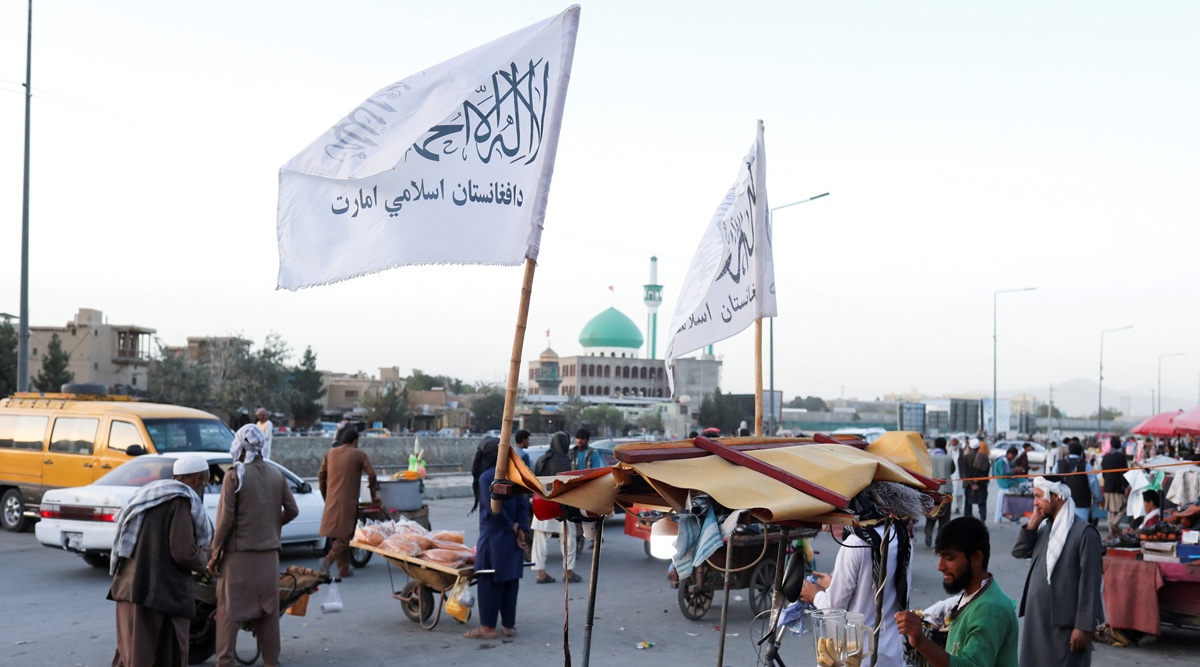Stay updated with the latest - Click here to follow us on Instagram
New Taliban guidelines stir fear about the future of press freedom
Many Afghan journalists fled the country, fearing repression and violence from the new rulers, while dozens more have gone into hiding and are still seeking a way out of Afghanistan.
 Members of the Taliban at the airport in Kabul, Afghanistan on Sept. 3, 2021. (Jim Huylebroek/The New York Times)
Members of the Taliban at the airport in Kabul, Afghanistan on Sept. 3, 2021. (Jim Huylebroek/The New York Times)
Written by Carlotta Gall
Concerns are growing at the increased constraints the Taliban government has placed on the news media in Afghanistan, after officials issued a new framework of rules for journalists that critics say open the door for censorship and repression.
Qari Muhammad Yousuf Ahmadi, interim director of the Government Media and Information Center and a longtime Taliban spokesperson, unveiled 11 rules for journalists this week. They include directives against publishing topics that are in conflict with Islam or insulting to national personalities, and also instruct journalists to produce news reports in coordination with the government media office.
[oovvuu-embed id=”a0a723b6-c6f3-4eeb-b51d-5621329f1497″ frameUrl=”https://playback.oovvuu.media/frame/a0a723b6-c6f3-4eeb-b51d-5621329f1497″ playerScriptUrl=”https://playback.oovvuu.media/player/v1.js”%5D
The once-vibrant media industry in Afghanistan has been in free fall since the Taliban seized control last month. Many Afghan journalists fled the country, fearing repression and violence from the new rulers, while dozens more have gone into hiding and are still seeking a way out of Afghanistan.
More than 100 local media companies and radio stations around the country have stopped operating, having been closed down, taken over by the Taliban or forced out of business for lack of funding, according to local media. Some of the most prominent newspapers have had to cease print operations and now publish only online, amid the country’s sharp economic downturn.
 A Taliban fighter walks on the side of a road as a Humvee carrying other fighters drives by in Kabul, Afghanistan, Tuesday, Sept. 21, 2021. (AP)
A Taliban fighter walks on the side of a road as a Humvee carrying other fighters drives by in Kabul, Afghanistan, Tuesday, Sept. 21, 2021. (AP)
A U.S.-based press freedom organization, the Committee to Protect Journalists, has been focused on the emergency response to help Afghan reporters and to track violence against journalists by the Taliban.
“Journalists are just frightened,” said Steven Butler, who manages the organization’s Asia program. He said the organization had been receiving hundreds of emails from journalists asking for help.
In early September in Kabul, the Taliban rounded up scores of demonstrators and journalists covering demonstrations against the new government, subjecting them to abuse in overcrowded jails, according to journalists who were present. Photos showed the backs of two detained reporters covered with bruises and gashes from being whipped with cables, prompting an international outcry.
More than a dozen Afghan journalists and media workers interviewed by The New York Times earlier this month described living with a sense of fear and self-censorship — while struggling to deliver news despite the Taliban releasing little information.
 The Taliban flags are seen on a street in Kabul, Afghanistan on Sept. 16, 2021. (Reuters)
The Taliban flags are seen on a street in Kabul, Afghanistan on Sept. 16, 2021. (Reuters)
The new rules announced by the Taliban have done little to calm the nervousness of members of the media and advocates for journalists.
Another press freedom organization, Reporters Without Borders, called the rules “spine-chilling” in a statement Thursday, and warned that although some of them — such as calls for truth and balance — might seem reasonable, as a whole the rules were “extremely dangerous because they open the way to censorship and persecution.”
In its statement, the group noted that while some clauses were similar to the wording in Afghanistan’s national media law, the Taliban had dropped any mention of conforming with international standards and press freedom conventions.
The Taliban did not respond to a request for comment.
Some of the rules could be used coercively, Christophe Deloire, secretary-general of Reporters Without Borders, said in the statement. “They bode ill for the future of journalistic independence and pluralism in Afghanistan.”
Butler said the vagueness of the rules, and their lack of standards, would allow them to be misused.
“You don’t really know what it means or how it will be interpreted,” he said. “A lot of countries across the region have rules that are similarly vague, and they are used on a regular basis to go after journalists, to put them into jail.
“Are we going to assume that the Taliban is going to be better behaved than these other governments that claim to be democracies?” Butler said. “It is hard to be optimistic about that one.”





- 01
- 02
- 03
- 04
- 05


























